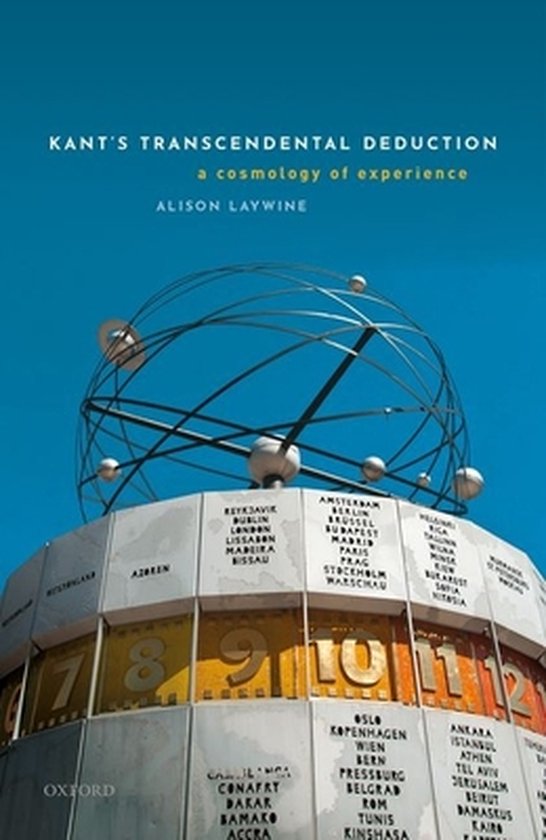
Kant's Transcendental Deduction
Alison Laywine presents a new interpretation of one of the most famous texts in modern philosophy: Kant's Transcendental Deduction in his Critique of Pure Reason. She shows how Kant developed his view of a world as a whole unified by universal laws, and his view of experience as the whole of all possible appearances unified by universal laws.
In this book, Alison Laywine takes up the mystery of the Transcendental Deduction in Immanuel Kant's Critique of Pure Reason. What is it supposed to accomplish and how? She collects evidence from the Critique and his other writings to determine what Kant took himself to be doing on his own terms and argues that he deliberately adapted elements of his early metaphysics both to set the agenda of the Deduction and to carry it out. She shows that the most important metaphysical element Kant repurposed for the Deduction was his early account of a world: he had argued that a world is not just the sum-total of all substances created by God, but a whole unified by God's universal laws of community that externally relate any given substance to all others. From this conception of a world, Kant then extracted a distinctive way to conceive key elements in the Deduction: experience is thus the whole of all possible appearances unified by the universal laws human understanding gives to nature. This cosmological conception of experience drives the Deduction.
In this book, Alison Laywine takes up the mystery of the Transcendental Deduction in Immanuel Kant's Critique of Pure Reason. What is it supposed to accomplish and how? She collects evidence from the Critique and his other writings to determine what Kant took himself to be doing on his own terms and argues that he deliberately adapted elements of his early metaphysics both to set the agenda of the Deduction and to carry it out. She shows that the most important metaphysical element Kant repurposed for the Deduction was his early account of a world: he had argued that a world is not just the sum-total of all substances created by God, but a whole unified by God's universal laws of community that externally relate any given substance to all others. From this conception of a world, Kant then extracted a distinctive way to conceive key elements in the Deduction: experience is thus the whole of all possible appearances unified by the universal laws human understanding gives to nature. This cosmological conception of experience drives the Deduction.
| Auteur | | Alison Laywine |
| Taal | | Engels |
| Type | | Hardcover |
| Categorie | | Religie, Spiritualiteit & Filosofie |